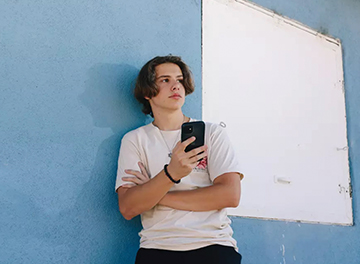
by Jaweed Kaleem / © 2024, Los Angeles Times, Distributed by Tribune Content Agency, LLC.
1
When William [Schnider], a 17-year-old rising senior at Van Nuys High School, learned that cellphones would be banned across L.A. public schools, he instantly scoffed—like so many others.
“I don’t see how it will work,” he said. “I don’t see how it’s fair. Is this necessary?”
Yet after the initial shock and an absolute “no” is voiced by many teenage students, more nuanced thoughts emerge: Maybe we are falling into social media and cellphone addiction. Maybe all the distractions and the obsession with “likes” are bad for us. Maybe we need some relief.
The Board of Education’s 5-2 decision to ban cellphones aims to change the behavior of a generation of students and will be one of the most consequential and closely watched shifts in schooling since students were forced to go to class online—many by phone—more than four years ago at the onset of the pandemic.
Stopping an addiction?
“I understand the intention of the ban,” said Schnider, who is in a medical careers magnet program and wants to become a physical therapist or physician’s assistant. “I definitely think phones can be addicting or distracting.”
He’s caught himself endlessly scrolling on Instagram or repeatedly checking how many people liked a story he posted recently of him and a friend on an outing. He’s seen students in class turning to their phones when math instruction gets challenging.
He’s also enjoyed finishing his assignments early during English and then playing the word game Connections with friends—with no teacher objection. Students with good grades like him, he said, don’t need a phone ban. When two students were stabbed on campus in [2023] and the school went on lockdown, William texted his mom to say he was safe. He wonders how emergencies will work without that option.
“For people with problems, this won’t stop any addiction,” Schnider said. “If you want to be addicted to your phone, you will be.”
...
Visit Los Angeles Times online.